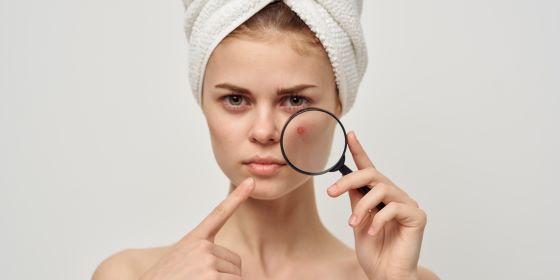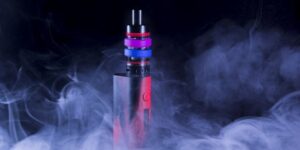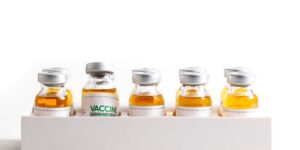Key Takeaways
- Understanding the multifactorial nature of acne is essential to effective management.
- Both topical and oral treatments play integral roles in an acne treatment regimen.
- Dietary adjustments and lifestyle practices can support and enhance acne treatment outcomes.
- Maintaining healthy skin often requires medical treatment, self-care, and community support.
- Accessing accurate information and professional guidance is vital in debunking myths and effectively treating acne.
Table of Contents:
- Understanding Acne: Causes and Effects
- The Relationship Between Diet and Acne
- Topical Treatments: What Works and Why
- Oral Medications for Acne: A Comprehensive Review
- Lifestyle Adjustments to Support Acne Treatment
- Procedures and Professional Treatments for Persistent Acne
- Tracking Progress: Tips for Monitoring Acne Over Time
- Understanding and Counteracting Acne Scars
- Myths Versus Facts: Dispelling Acne Misunderstandings
- Support Networks and Community: Finding Help and Sharing Experiences
Understanding Acne: Causes and Effects
Acne is a complex dermatological condition that affects millions of people worldwide. It is not just a superficial concern, as it occurs when hair follicles become clogged with oil and dead skin cells, leading to unsightly pimples, blackheads, and whiteheads on the face, neck, chest, and back. Acne can have a significant psychological impact, leading to decreased self-confidence and social withdrawal. It is not only a teenage phase or a result of poor hygiene, as it can persist into adulthood.
The Relationship Between Diet and Acne
The connection between our diet and skin health is an ongoing topic of interest and research. Certain foods high in sugar and dairy products have been linked to worsening acne conditions. On the other hand, foods rich in zinc, vitamins A and E, and antioxidants can help improve our skin health. Understanding this correlation can help people make better dietary choices that positively impact their acne symptoms, especially with an effective acne dark spot treatment.
To better understand how our diet affects our skin, many research studies have been conducted to identify the dietary patterns that affect the severity of acne. A balanced diet with anti-inflammatory and non-comedogenic ingredients is recommended to manage acne-linked inflammation and reduce breakouts.
Topical Treatments: What Works and Why
Several topical treatments are available for managing acne, each with unique active ingredients for various types and severities of acne. Ingredients like benzoyl peroxide and salicylic acid are effective in fighting bacteria and cleansing pores, while retinoids, which are derivatives of Vitamin A, help regulate skin cell turnover and prevent the buildup that causes acne lesions. With so many over-the-counter options available, it can be overwhelming to choose the right one. However, it is essential to know what ingredients to look for and how they work with your skin type. For instance, those with dry or sensitive skin may benefit from products with lower concentrations of active ingredients to reduce the likelihood of irritation.
Oral Medications for Acne: A Comprehensive Review
Oral medications, often a second-line treatment for more severe or persistent acne, can be crucial in comprehensive acne management strategies. Antibiotics are commonly prescribed to reduce bacteria and inflammation. Hormonal therapies, such as birth control pills, may be effective for women whose acne is influenced by hormonal fluctuations. For the most stubborn cases, isotretinoin, known for its potency, may be an option.
As with any medication, it is imperative to understand the possible side effects and to undergo treatment under a healthcare professional’s guidance. Monitoring the body’s response to these medications helps maintain a balance between therapeutic effectiveness and the management of any adverse reactions.
Lifestyle Adjustments to Support Acne Treatment
Complementing medical treatments with lifestyle modifications can enhance the overall effectiveness of acne management. Stress, known to worsen acne, can be managed through mindfulness practices, sufficient sleep, and regular physical activity. These practices improve physical health and reduce stress, which can decrease cortisol levels and, subsequently, the severity of acne.
In addition to managing stress, following a consistent skincare routine is essential in acne management. This includes gentle cleansing to remove impurities and makeup, moisturizing to maintain the skin barrier, and applying sunscreen to protect against photodamage, which can worsen acne and lead to scarring.
Procedures and Professional Treatments for Persistent Acne
If conventional treatments fail to cure acne, dermatologists offer various procedures that can be alternatives. Some of these treatments include light therapy, which targets acne-causing bacteria and reduces skin oiliness, and microdermabrasion and chemical peels, which remove the top layer of skin to encourage new and healthier skin growth. The selection of treatment depends on the individual and their unique presentation of acne. Therefore, it is essential to consult a dermatology specialist to determine the most appropriate intervention.
Tracking Progress: Tips for Monitoring Acne Over Time
Monitoring an individual’s response to acne treatment is essential to manage acne effectively. By maintaining a dedicated skin diary, one can keep track of their progress, noting any improvements or worsening of their condition and any possible triggers or reactions to new products or dietary changes. This practice can help personalize treatment, make necessary adjustments, and provide valuable insights to healthcare providers.
Understanding and Counteracting Acne Scars
Acne can leave scars long after the active acne has disappeared. Knowing the types of acne scars and their appropriate treatments can help individuals find the most suitable interventions. For example, collagen-stimulating treatments like lasers may help improve atrophic scars, while hypertrophic scars may require steroid injections to flatten. Preventing scarring begins with early and effective acne treatment, underscoring the importance of timely medical advice and therapy.
Myths Versus Facts: Dispelling Acne Misunderstandings
Many myths surrounding acne can lead people away from effective treatments. For example, some people believe sunbathing can cure acne, but this is false. While sun exposure has some temporary anti-inflammatory effects, it does not provide a long-term solution. UV radiation can make acne worse and damage your skin. It’s essential to get accurate information and consult with experts to ensure you use the best acne management strategies.
Support Networks and Community: Finding Help and Sharing Experiences
Achieving clear skin can be challenging and time-consuming, with obstacles and setbacks. However, it is essential to acknowledge the value of support networks and communities, as they offer emotional support, valuable insights, and a sense of camaraderie. Both online forums and local support groups can empower individuals to share their struggles and successes openly, creating a collective strength and optimism that can significantly improve the fight against acne.





